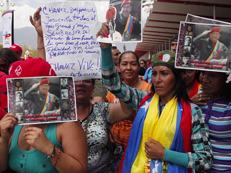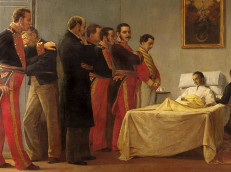After watching “Power to the People” my first impression was how familiar the content looked to me at first glance. This student video displayed black and white clips of political meetings, marches and speeches which -displayed as they were, without colour and audio- could easily have represented almost any European or American country in the mid 20th century. Before beginning this course I was aware that I had an incorrect perception of Latin America as an exotic, idealistic paradise, but this video struck me particularly because I learnt it is not at all as far-removed from my own culture as I had thought. This video was on populism in Brazil, and the political, historical narrative surrounding it. Additionally, the background music of “Power to the People” made it seem extremely professionally produced. The video “Brazilian Slavery and Abolition” had a similar impression on me, in the way that the actions and series of events in that section of history are not unfamiliar to my understanding.
Watching “Independence Narratives, Past and Present” helped me gain a brief understanding of one of the reasons possibly why these countries are grouped together as Latin America – they share a common history. From what I gathered, they were fighting for freedom from colonial bonds at roughly the same time as each other. This reminded me of learning about how European countries all rebelled against feudalism at around the same time in the 1700s because each revolution triggered another. Further research showed me that tomorrow is Mexican independence day!
Finally, watching “A Revolutionary Process: The Cuban Revolution in the 1960s” was very entertaining and also really interesting to see a subject of more modern history. At school I had briefly learnt about Cuba’s involvement in the Cold War, but I had never connected that history to the concept of Latin America in my mind, as I had learnt from a Western perspective -not talking much about the Cuban people themselves at all. Interestingly, when the student stated “…the United States viewed Cuba as a back door…” It made me think of the things I have read about their modern views of Mexico, and the alleged dangers brought by Mexican immigrants and connections to drug cartels.
Overall, I really enjoyed watching the student videos. Even though not all of the content was about things I am specifically interested in, it was great to see brief introductions to some of the course content and I was surprised by how much I learnt from them.


